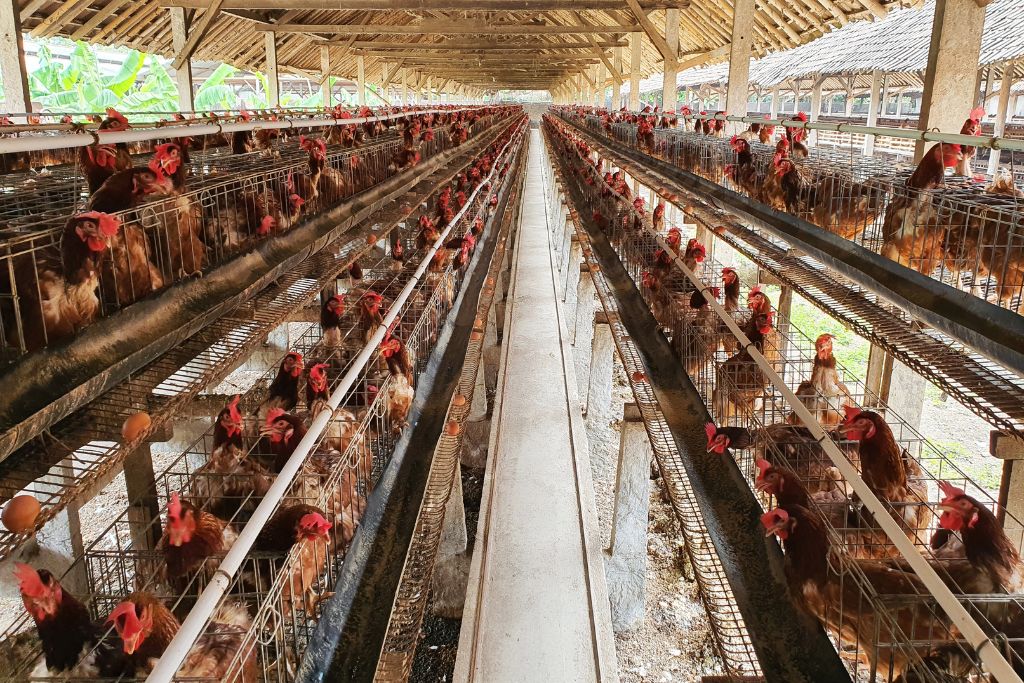EU countries scrapped the initial plan to include cattle farming in the new rules aimed at cutting pollution from livestock farms.
—
The European Parliament approved new watered-down rules to cut pollution from livestock farms and factories on Tuesday, following months-long protests by farmers who have raised concerns about their livelihoods and the future of their practice in the region.
The new industrial emission directive, approved with 393 votes in favour, 173 against, and 49 abstentions, targets pig and poultry farmers with more than 350 and 280 livestock units, respectively, tightening limits on waste disposal, water consumption, raw material use, and polluting gases such as methane and ammonia.
Europe’s agricultural sector, and cattle farming in particular, are responsible for the release of huge amounts of methane, a potent greenhouse gas with 28 times greater global warming potential than carbon dioxide, and ammonia, which contributes to the formation of secondary particles. The latter alone contributes about 50% of PM2.5 air pollution in the European Union.
“Only 30% of the largest industrial scale pig and poultry farms would be in the scope of the revised directive,” said EU Environment Commissioner Virginijus Sinkevicius. Indeed, farms raising pigs in an extensive or organic manner or for a limited period of time in a year are excluded from the new regulations.
The original directive revision proposal advanced by the European Commission in 2022 would have imposed strict limits on all pig and poultry farms with over 150 livestock units, targeting approximately 185,000 of Europe’s largest farms.
But what raised concerns among environmentalists is the notable absence of cattle farming, which was also part of the original proposal, after a push from Bulgaria, Germany, Italy, Poland and other European countries to include fewer farms in the directive. The Commission is expected to assess the need to add cattle farming to the legislation by the end of 2026.
The vote came after months of intense protests from European farmers voicing their frustration about high taxes, rising costs, and increased competition with foreign countries. At the centre of these Europe-wide protests, however, is also a list of sustainability policies advances by the EU to revamp the €55 billion (US$59.4) Common Agricultural Policy (CAP), the EU’s oldest and costliest policy that implements a system of agricultural subsidies and other programmes, with farmers arguing that the new green rules will decrease competitiveness with countries that have less stringent environmental regulations.
Tuesday’s vote comes after the EU last month conceded derogations on some green rules that would have required farmers to set aside land to promote biodiversity and healthy soil.
“Today’s vote shows Parliament’s commitment to the zero pollution goals of the Green deal and the health of Europeans,” said MEP Radan Kanev, adding that the legislation recognises the struggles of European businesses and farmers and is a demonstration that environmental goals can be achieved “without placing an additional administrative burden” on them.
You might also like: Why Are European Farmers Protesting?


















